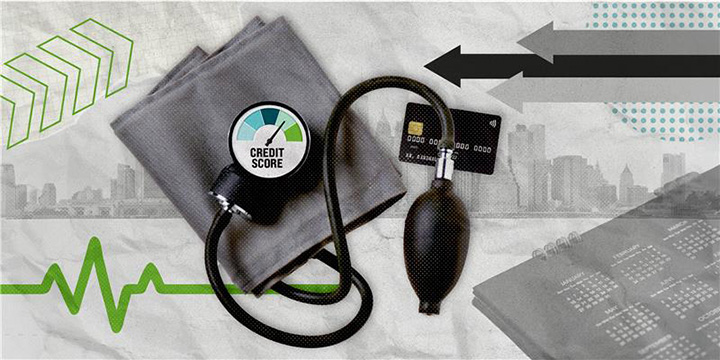Your credit score isn't just a number - here's why it matters.
Understanding your score can unlock major money moves

What exactly is a credit score – and why does it seem like such a big deal? The truth is your credit score is more than just a number on a report. It plays a significant role in your financial life and can affect everything from getting a loan to renting an apartment.
Understanding how it works is a game changer whether you’re just starting to build credit or trying to boost your score. Let’s break down three key things you should know:

1. Your score is your financial GPA
Yep, it’s basically your financial report card – and yes, people are checking it. The better the score, the more doors it can open (and the less you’ll pay in interest). Scores range from 300 to 850; the higher the score, the better. Lenders use it to decide if they’ll approve you for things like loans and credit cards, but it doesn’t stop there. Landlords, utility companies, insurance companies, and even some employers might check it, too.
The good news is that your credit score isn’t set in stone. It changes based on your habits, meaning you always have a chance to improve it if it’s not where you want it right now.

2. A good score is your access to better money moves
A good credit score can seriously work in your favor. It could mean lower interest rates on loans or credit cards, better chances of getting approved for big purchases, and even access to reward programs or travel perks.
More than anything, your score can open up new financial possibilities. It’s not just about where you are today – it’s about what you’ll be able to do tomorrow.

3. You totally have the power to improve it
Your score isn’t stuck where it is. Pay on time, keep balances low, and watch the magic happen. Small habits = big credit glow-up.
The most important one? Pay your bills on time. It sounds simple, but late payments can stay around for up to seven years on your credit report. Set reminders or turn on autopay – whatever helps you stay on track.
Also, try to keep your credit card balances and overall credit utilization low. Using less than 30% of your available credit shows lenders you’re responsible with your money. These small changes really do add up over time.
It’s your time to shine
A budget isn't set in stone—it should change as your life does. Check-in monthly to tweak things based on your income, expenses, or new financial goals.
Got a bonus? Picked up a side hustle? Put some of that extra cash toward debt or savings. And don't forget to build up an emergency fund – your financial safety net for unexpected expenses like medical bills or car repairs. Even setting aside $20 per paycheck adds up over time! Oh yeah, one final thing, give yourself some grace if you lose track of your budget. We all do at times. Recognize where you fell off track and get back on course as quickly as possible.
It's your time to shine. At the end of the day, your credit score is just one piece of your financial puzzle – but it’s an important one. And the best part? You’re in control. The more you understand how it works, the easier it is to build the kind of financial future you want.
Start small. Stay consistent. You’ve got this.
Exeter Finance LLC is not a credit repair agency or licensed credit counselor. Exeter does not offer services to fix or improve credit scores. These tips are intended for general educational purposes and should not be construed as legal, financial, or credit repair advice.
You're leaving our site
You’re about to visit a third-party site. While we don’t control or endorse its content, we share this link to support your financial journey. Any information you provide or actions you take will be governed by their terms and privacy policies.


